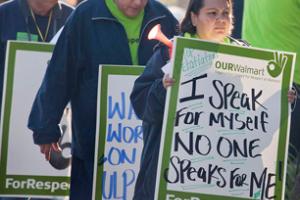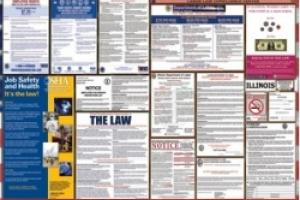Americans Oppose Affirmative Action for Race, If You Only Ask White Americans
The Atlantic
 The strike has long been labor's most powerful weapon. Strikes put pressure on the employer - which needs the employees' labor to run the business. Congress understood the importance of the strike to labor unions, so it protected strikes in two ways in the National Labor Relations Act (NLRA). Although Congress made it clear that it viewed the strike as a right of utmost importance, the Supreme Court wasted no time in limiting and weakening the right to strike.
The strike has long been labor's most powerful weapon. Strikes put pressure on the employer - which needs the employees' labor to run the business. Congress understood the importance of the strike to labor unions, so it protected strikes in two ways in the National Labor Relations Act (NLRA). Although Congress made it clear that it viewed the strike as a right of utmost importance, the Supreme Court wasted no time in limiting and weakening the right to strike.
 Appeals Court rules NLRB cannot require employers to post notices informing employees of their labor rights. The decision, which comes less than three weeks after lack of regulatory enforcement led to a fertilizer plant explosion in West, Texas that killed 14 and left about 200 injured, opens the door for businesses to challenge requirements that workers be informed of their health, safety and employment rights.
Appeals Court rules NLRB cannot require employers to post notices informing employees of their labor rights. The decision, which comes less than three weeks after lack of regulatory enforcement led to a fertilizer plant explosion in West, Texas that killed 14 and left about 200 injured, opens the door for businesses to challenge requirements that workers be informed of their health, safety and employment rights.
 The Supreme Court's decision in Allied Chemical Workers v. Pittsburgh Plate Glass to give employers complete control of retiree benefits undercuts the purpose of the National Labor Relations Act and leaves vulnerable, retired employees powerless to protect themselves from costly changes in benefits.
The Supreme Court's decision in Allied Chemical Workers v. Pittsburgh Plate Glass to give employers complete control of retiree benefits undercuts the purpose of the National Labor Relations Act and leaves vulnerable, retired employees powerless to protect themselves from costly changes in benefits.
 "It no longer surprises me when extremist state legislators try to restrict our voting rights. I don't like it and we fight against it, but I'm no longer surprised by it."
"What surprises and outrages me is that yesterday a Supreme Court Justice said that the protection of the right to vote is a 'perpetuation of racial entitlement.'"
Benjamin Jealous, President and CEO, NAACP
"It no longer surprises me when extremist state legislators try to restrict our voting rights. I don't like it and we fight against it, but I'm no longer surprised by it."
"What surprises and outrages me is that yesterday a Supreme Court Justice said that the protection of the right to vote is a 'perpetuation of racial entitlement.'"
Benjamin Jealous, President and CEO, NAACP
Spread the word